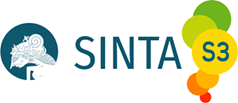Development of PBL-Based LKPD to Enhance Students' Mathematical Literacy Skills)
DOI:
https://doi.org/10.33394/mpm.v13i1.15608Keywords:
Problem-Based Learning (PBL), student worksheets (LKPD), polynomials, mathematical literacy, mathematics education.Abstract
This study aims to develop and evaluate a Problem Based Learning (PBL)-based Student Worksheet (LKPD) on polynomial material for 11th-grade students at SMAN 1 Lingsar. The development of the LKPD follows the modified 4-D model, which includes the Define, Design, and Develop stages, due to time and budget constraints. This research employs a one group pre-test and posttest experimental design, involving 30 11th grade students as subjects. The LKPD was validated by two experts: a content expert (80%) and a media expert (90%), who assessed aspects of content accuracy, instructional relevance, clarity, language, simplicity, visual design, and the integration of PBL components. The practicality of the LKPD was measured through questionnaires given to both teachers and students, with results showing a practicality level of 97% in terms of usability and instructional value. The effectiveness of the LKPD was tested through a mathematical literacy assessment given before and after the learning intervention. Data analysis was performed using a paired sample t-test, which showed a statistically significant improvement (p < 0.05) in students' mathematical literacy scores, particularly in problem formulation and solving indicators. These findings empirically support the use of the PBL model as a framework for designing instructional materials that can enhance mathematical literacy. The use of Canva as a design tool also increased student engagement through appealing and functional visual displays. The results of this study demonstrate that contextual and visually designed instructional materials can be effective pedagogical instruments, especially for abstract mathematics topics like polynomials. This research contributes to mathematics education by presenting a validated PBL based LKPD design model that can be adapted for various subjects and educational levels.
Downloads
Additional Files
Published
How to Cite
Issue
Section
Citation Check
License
Authors who publish with this journal agree to the following terms:
- Authors retain copyright and grant the journal right of first publication with the work simultaneously licensed under a Creative Commons Attribution License that allows others to share the work with an acknowledgement of the work's authorship and initial publication in this journal.
- Authors are able to enter into separate, additional contractual arrangements for the non-exclusive distribution of the journal's published version of the work (e.g., post it to an institutional repository or publish it in a book), with an acknowledgement of its initial publication in this journal.
- Authors are permitted and encouraged to post their work online (e.g., in institutional repositories or on their website) prior to and during the submission process, as it can lead to productive exchanges, as well as earlier and greater citation of published work (See The Effect of Open Access).
Â













